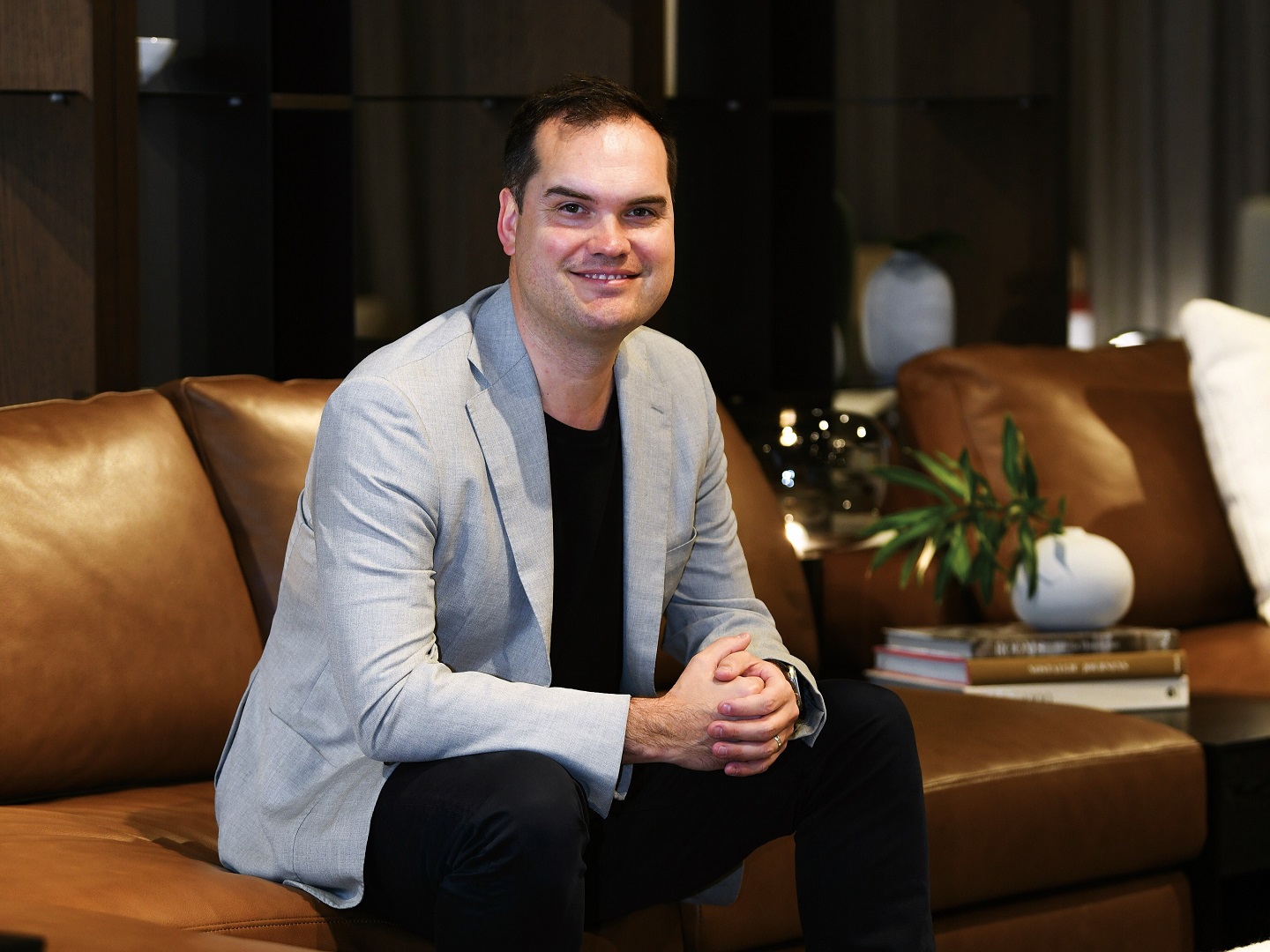
British-born Woollcott joined King Living last November, bringing with him years of experience in luxury automobiles and premium home appliances (Photo: Low Yen Yeing/ The Edge Malaysia)
The price tag can stay one’s hand when it comes to making a big-ticket purchase. While most people look at the cost, King Living’s new CEO David Woollcott focuses on the value. Putting his money where his mouth is, he points to shoes that he bought about nine years ago.
You can buy a cheap pair or one that can be reconditioned and resoled, he starts. “Mine are on their second sole. Made in Northampton, they started out two to three times more than the normal cost of a pair. Economically, now I am ahead and saving money in the long term. Buy right, buy once — we are seeing more of that.”
Quality furniture designed to adapt to changing lifestyles and built to last brings home Woollcott’s point about cost versus affordability over the lifetime of the product. It is the hallmark of King Living, founded in Sydney in 1977 by David King and his interior designer mother, Gwen. Appalled by poor-quality pieces dumped by the side of the road and destined for the landfill, the young man set out to do something. Forty-six years down the road, the Australian brand is as solid as the steel that frames its modular furniture tailored for flexible living.
British-born Woollcott joined King Living last November, bringing with him years of experience in luxury automobiles and premium home appliances. In Kuala Lumpur for a quick visit last week, he shares what led him to the brand, his plans for it, aspects of sustainability that may not be so obvious and a very personal interest — redundancy.
“I’m a lover of good design, engineering and operating with purpose — that’s what we do. I’m attracted to this company because I just love the products. They are as much engineered as designed.
“What we are recognising everywhere in the world is people no longer just want furniture they will own for six, seven years and then throw out. They want something they can recover and recondition. Consumer behaviour has definitely changed since the pandemic — priorities and needs have shifted.”
He also finds it “pretty nice” to be a part of a privately owned, vertically integrated organisation that still operates with its original core values. “We do [run] much like a family than a business. We work hard but try to combine the elements of both.”
A key element of a family business is that sustainability is ingrained in its fibre. “I think the one thing families do instinctively is cut waste because once they’ve started, there are bills to pay and they have to reinvest in the business.
1977-pkg4_-_king_-_2522.jpg
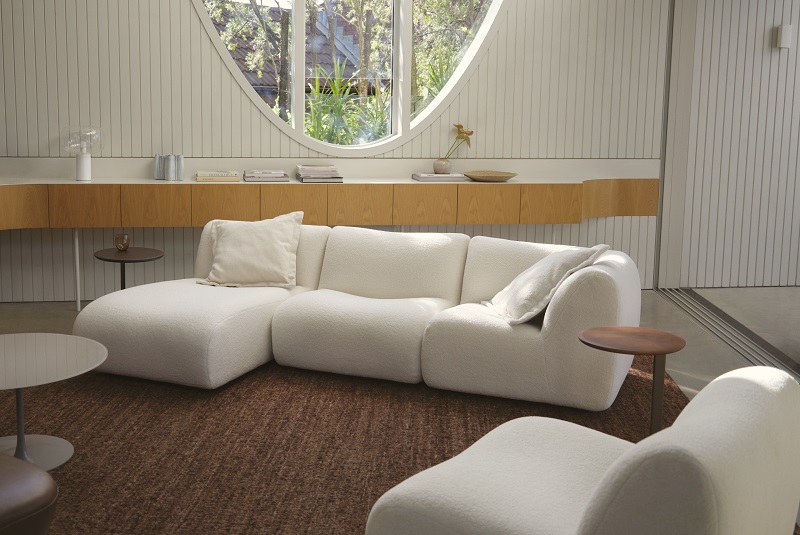
“Every time I see money here, I see [it as] family money. It doesn’t matter how much or how little they’ve got, that consciousness runs through the organisation. If you think like the owner, you’re more likely to make balanced decisions. That’s a fundamental principle of sustainability. I think sustainability has been confused with the planting of trees or the driving of a Tesla.”
Questions about leather and whether it is bad for animals and the planet also set the team thinking “really deeply”.
“We do not raise cattle for leather. Ours comes from Germany and Italy, a waste product of the meat industry. If you were to strip one of our sofas and the leather goes to the landfill, it would decompose,” Woollcott says.
The company’s biggest environmental impact is shipping. Mindful of that, it has systems in place to minimise the effects and save costs. Boxes to load products in containers are designed such that they can be packed as densely as possible. And steel, which King introduced to give his furniture longevity, is sourced close to the company’s factories, which means a far lower carbon footprint than, say, shipping timber from around the world.
“My personal philosophy is try to eat food that’s been made closest to your home because it immediately knocks out transport. Eating beef from Australia is fine because it’s probably from up the road. But a cow that has been on a boat for days or weeks?”
Sustainability is also about keeping what brings you joy, heritage and emotional attachment. King, who is still intimately involved with the set-up of the stores, recently released the 1977 Sofa, a contemporary take on the brand’s inaugural Award Sofa, which made its debut that same year.
Retaining the classic profile of the piece moulded from foam on a steel frame, the 1977 was reimagined with modern materials and construction methods. “We have this cyclical story of continuous improvement and it was great fun to bring this product back,” says Woollcott.
The brand story is centred on the way people live around their furniture today, in different parts of the home. With accommodation the world over becoming smaller, modular pieces that can be combined and configured to suit space and use are gaining traction. Similarly, smart accessories that marry aesthetics and function, such as armrests installed with wireless charging pads, portable reading lights, side pockets and removable covers sewn from premium fabric or European leather.
Woollcott sees a big move towards health, well-being and sustainability, with consumers more conscious about purchases, and more willing to spend on high-quality, high-value products that will last.
1977-pkg5_-_king_-_0157_a_finals.jpg
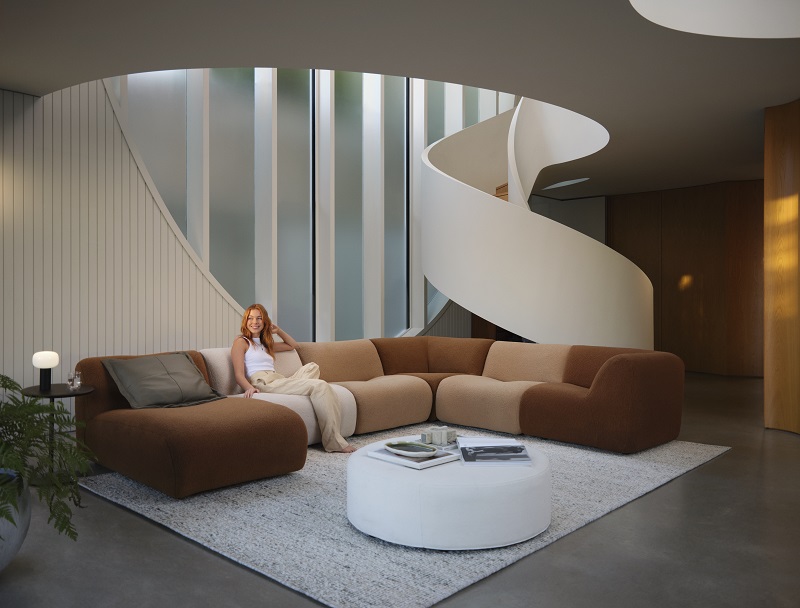
“They want to know where we source our materials, how they are made, if a product is recyclable and how long it is going to last — core tenets of sustainability.” In Australia and the UK, people are spending more time at home than in offices, so products have to work harder. They are also lounging around or hosting friends. “I’ve seen a real uplift in consumers using home appliances and furniture.”
Furniture is certainly a growing market and various factors are giving demand a push. “By and large, we are healthier and wealthier than our parents and we have a higher standard and quality of living than them. We have enough to worry about in the world but there’s [equally] enough to be positive about,” Woollcott reckons.
Strong demographic improvements are coming throughout the world. China is an unbelievable force. In India, millions are coming out of poverty, he says. A 2019 United Nations Development Programme report states that the country lifted 271 million people out of poverty in a decade. “One day, they might want some King furniture — we need to be there. I believe there’s a very positive story to that.”
The global increase of the middle class augurs well for business. There are also the growing numbers of the super wealthy who require not just one but five sofas. “We sell to families where the children’s rooms have big sofas in them.”
Multigenerational living, popular, then unpopular, is back in fashion. The psychographics and demographics of different ages under one roof has led to shared or group housing, concepts that are evolving simply because the cost of living expenses have risen considerably.
“We are mindful of these topics,” says Woollcott, who observes that older people require different things in their living space. Access angles to a chair and the softness of a cushion are really important to them. They also prefer a firmer sofa that is slightly higher.
In every home lies a potential customer, no doubt, but the play element in King products counts for him. Having spent almost all his working life in Australia — about 20 years — informality and the casual approach have rubbed off on him.
“Where I come from, there is formality, social structure. You can see our furniture is about relaxing. They are quite playful in design, [something] to live with.”
Malaysia is his first trip outside the home base, eight months into the job. “I’ve been trying to work out a team, discovering more about King’s plans, his vision for the company, and integrating that into our planning.” Other stops on his two-week visit are Singapore, Thailand, China and the UK.
1977-pkg5_-_king_-_0907_finals.jpg
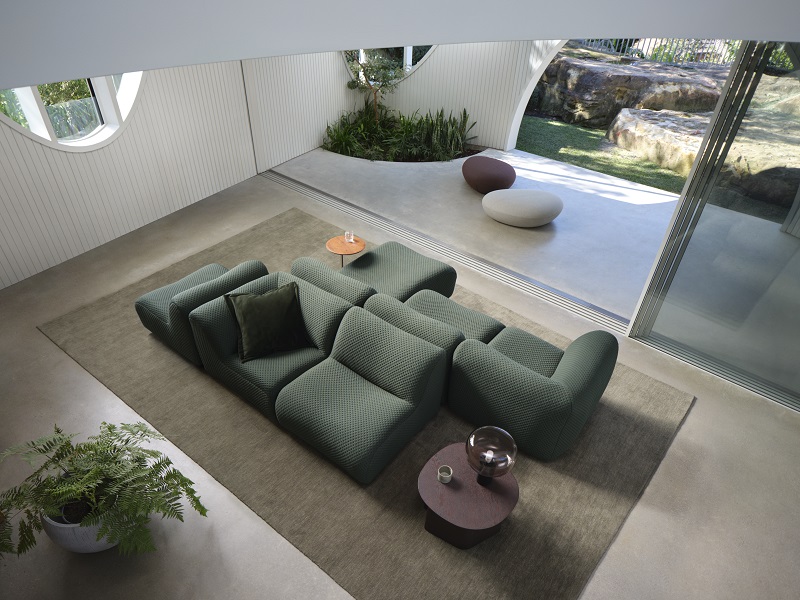
“The teams here are working so well. It’s not like I need to fly out suddenly and have a look at what we are doing. It’s a high degree of trust we have in Singapore and Malaysia, actually all our markets. We’re lucky, very lucky.
“The activity is really in the organisation, understanding more about our delivery process, more about quality and our design process, and knowing the retail end of our business. Now that we have stabilised some things, it’s a good time to come out.”
Luck does not afford the luxury of resting on one’s laurels and Woollcott knows there is work to be done.
“Our brand is very consistent but there’s always going to be that 10% or 15% which is different because our customers and their needs are different. The way people live their lives here is different from Singapore, let alone Australia. The more we understand that, the better our offers will be. We’re not trying to pick up sales everywhere. We’re trying to explain the Australian design story and why King is so different.”
Which brings him to what he likes most about the business, or his 3Ps: planning, people and products. He is keen on the planning aspect because teams work so much better if they know what is ahead of them rather than being surprised. The more insights leaders can give the staff, the better results they will yield, he believes.
But often, all the planning is done centrally in a company. “You kind of spit out commands and then wonder why you don’t get a buy-in. We are quite fortunate that we’ve got really strong buy-in. I think it’s because the family has been involved in the business here. They’ve been here a lot.”
Woollcott says his role is to help King and the team build a 100-year brand that places great value on its products and services. “I will look different in 53 years but, hopefully, the business will be there, still with its core principles and designing good furniture with the flexibility and modularity to grow with you.”
He considers himself a designer too, for the organisation, making sure it has the right roles and capabilities. “We need to have harmony with the big team, and be sensitive to the personality and culture of the founder. That’s really important because many people in suits, like me, turn up and can destroy a business with ‘good’ ideas but they are horrible to the culture, not good to the people.
“My personal philosophy is you can do both. You can bring teams with you while still putting in the change needed to improve the business. It takes a little bit longer but it sticks and is worth it,” says the chief executive who describes his management style as servant leadership. “I tend to lead from the base rather than from autocracy or [being] demanding.”
Independent of work but something Woollcott started because it reminds him of one tough thing he has had to do — tell employees they are no longer needed — is SaddleUp!, a network of leaders that supports those recently made redundant.
01-jasper-hero.jpg
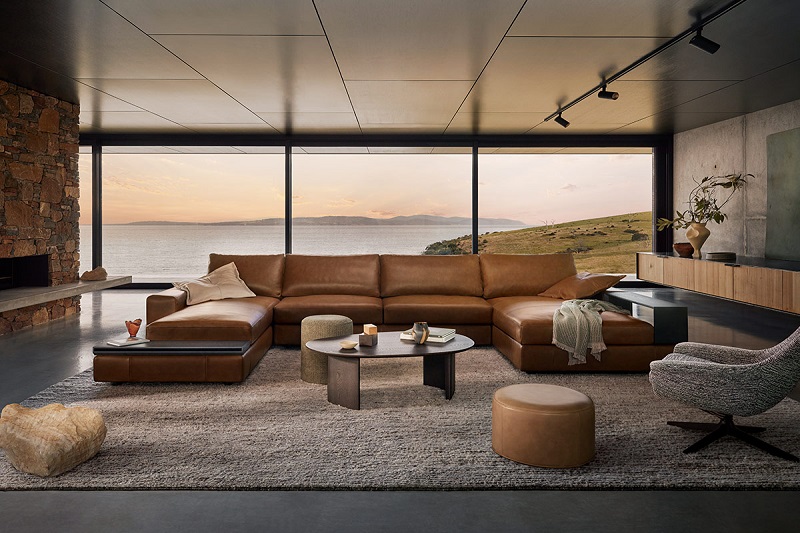
Woollcott himself was made redundant at end-2017, the first time he had been let go, when the company he was with had a restructuring. “That hurt emotionally, it was hard. But I regathered, moved back to England with my family, worked for a company, introduced my kids to their grandparents and made some new friends.”
Then the pandemic came and news that people were losing their jobs — about 1.4 million in the UK — flooded in. Having walked in the shoes of those asked to leave, Woollcott knows how it feels. He put up a notice on his LinkedIn page saying that if anyone wanted to reach out, he would give two hours a week, six free sessions of 20 minutes. “Book me,” he wrote, and went to bed.
When he looked at his phone the next morning, the message had been shared 73,000 times!
“I was like, ‘Oh god, how am I going to do this?’ A friend stepped up, saying he would take questions and provide feedback on financial services. Then someone from marketing and another from automotive joined in. It just happened. I called it SaddleUp! because, for me, redundancy is like you’ve fallen off your horse. Whatever you do, just get back on.”
By the end of the pandemic, the team had spoken to about 2,000 people. There are some things they don’t do: give financial, legal or mental health advice. “But we give peer-to-peer confidential advice. It’s a kind of informal network highlighting what somebody is going through.”
Part of the SaddleUp! process is to never criticise the company, he explains, because “I believe, like a sinking boat, some people have to leave for it to sail. The decisions leaders have to make are intense as well”.
Recalling his own experience, Woollcott says there is little comfort in being told, “We like you, you’re really good, we just don’t want you to be with us in the future. How can I not take that personally?”
Saddlers help those made redundant understand what happened, the next steps to take and why it is important to look for a job only when they are ready because panic can make them dart from one company to the next. Employers will sense an applicant’s desperation and take him for maybe cheaper and he ends up underselling himself.
“So you really have to slow it down. It’s got to be painful for a period. Stay with it. Know you are not alone and, as much as you can, try to be very deliberate and don’t just settle.
“It does sound sensible on hindsight but when I was made redundant, I was panicking because I had family, rent payment, car payment, phone payment, and my wife was not working. We earn [this] much but spend [that] much because there are things we want to buy — like King furniture.”
Woollcott wants to take SaddleUp! with him wherever he goes. “It’s something I want to do because I feel I’ve got experience in some areas. [Likewise] the Saddlers. We have 35 now and everyone has had a run-in, a collision. The best boxers are the ones who’ve lost the fight — there’s resilience.”
Part of his wanting to keep this “side gig” stems from the guilt of having let people go. “As an individual, I’m quite sensitive, I overthink. It helps me as much as others to know I don’t want to be that boss or manager who tears around the place like a whirlwind. When I walk into any building, I want people to feel I’m going to add value and not here just to mess around.”
Messing around with his sports-mad children, aged 11 and eight, is a different ballgame though. On Saturday nights, the family collapses in a heap, on the Jasper, his favourite King sofa, enjoying time together in plush, modern comfort.
This article first appeared on July 10, 2023 in The Edge Malaysia.


